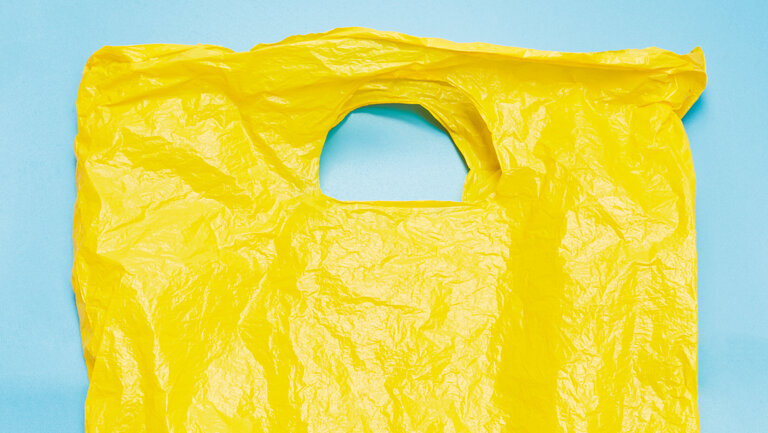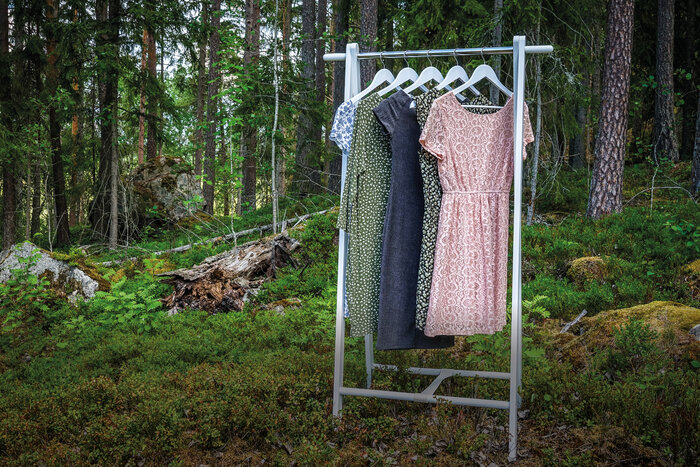Climate fasting

Every year on Ash Wednesday, Christians begin Lent. During this 40-day period before Easter, people are supposed to give up things that are pleasant and dear to them, such as chocolate, alcohol, or cigarettes. This is an outward sign of repentance and reflection. In the past, fasting was about nothing less than the salvation of the soul. Nowadays, however, they are more likely to be well-intentioned resolutions at the start of a new year.
But regardless of whether it is a renunciation or a resolution, the aim is to commit to it under the motto “less is more.” According to a Forsa survey conducted last year, Germans have a clear idea of what they want to reduce: beer, wine, or candy. Lent has therefore become more of a fitness period these days. It shouldn’t actually be a great sacrifice to give up things that are harmful to the body and mind in the long term. It is actually just common sense. In any case, such awareness of the problem would also be desirable on the other 325 days of the year.
What is climate fasting?
Even if you have no connection to the church or low-carb food, Lent can still be put to good use. So, why not try to tackle the things that are really difficult, such as climate fasting? This time, everyone could try to live more sustainably, consume less, and reduce their carbon footprint accordingly.
The churches have been calling for nationwide climate fasting since 2015. Each of the seven weeks between Ash Wednesday and Easter Sunday has a different motto. Whether you are a believer or not is irrelevant. After all, it is no longer just about consumption, calories, and comfort; it is about improving quality of life. Therefore, fasting is a suitable opportunity to reflect on your own life and make it more climate-friendly. Ideally, everyone will find the inspiration to transfer the newly learned behavioral patterns into their everyday lives after Easter. After all, climate fasting can not only change the world, but also shows how easy and feasible it is to protect the environment.
Ideas for climate fasting
1. 40 days without plastic
One sustainable idea, for example, would be to go completely plastic-free for 40 days. Logically, a short period of fasting does not really help with this global problem, quite apart from the fact that it is actually sad to need a special occasion for environmentally friendly behavior. Nevertheless, it would be a start, and who knows, maybe this lifestyle will even find enthusiastic imitators among friends and acquaintances!
There’s no doubt about it, going plastic-free requires creativity and brains, but it is still within the realms of feasibility. In the bathroom, solid shampoo, solid soap, natural cosmetics, and bamboo toothbrushes will reign in future. In the kitchen, there will be no plastic wrap or aluminum foil for the time being. Instead you will have more fresh vegetarian food without additives from the weekly market. And when shopping at the local international store, a cloth bag will soon be used instead of a plastic bag. Fruit and vegetables will be placed loose in the shopping cart during Lent and, as an alternative to drinks in PET bottles, water will be available from a glass bottle or even the tap.
2. Save electricity by limiting consumption of electronics
Limiting the consumption of electronics would be equally simple. Instead of hours of Netflix or Playstation sessions on the sofa, simply go for a long walk and get in touch with nature, or get the tried-and-tested board games out of the drawer with your partner. This not only saves electricity, but also strengthens the emotional bond.
3. Save on heating and water costs
It is not just plastic you can do without—the list of ways to do without is long. Other ideas include lowering the room temperature by one degree or reducing your shower time to a maximum of 90 seconds. This is an easy way to save electricity and water.
4. Avoiding the car or keeping to the speed limit
If you cannot do without a car altogether, keeping to the speed limit is enough to reduce greenhouse gases.
5. Support fair trade stores
Shopping does not have to take a break during the ascetic weeks either. Various seals and labels in the fair trade store provide information on whether selected items of clothing have been produced sustainably.
![[Translate to English:] Sergey Nivens - Fotolia.com](https://cdn.dreso.com/fileadmin/_processed_/7/5/csm_Warum_findet_der_Earth_Overshoot_Day_immer_frueher_statt_acd6ee15f9.jpg)



